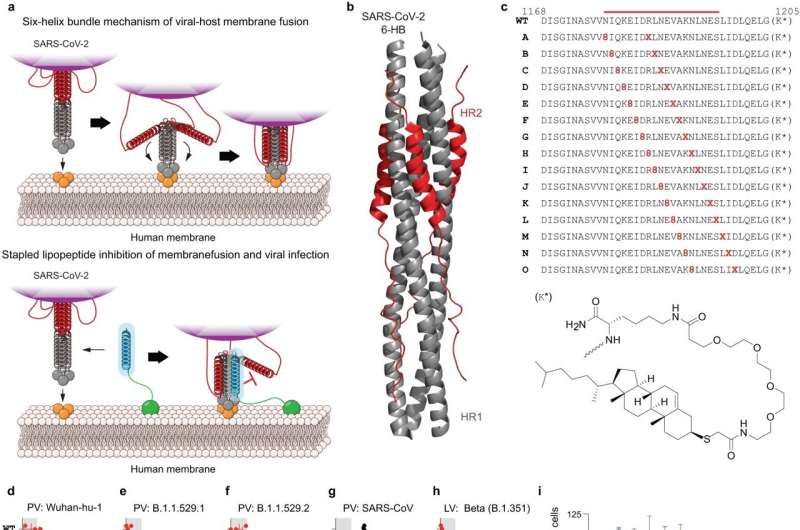Compounds that obstruct the “landing gear” of a range of harmful viruses can successfully protect against infection by the virus that causes COVID-19, a study led by Dana-Farber Cancer Institute scientists shows. Based on the findings, researchers have launched a human clinical trial of one such compound made by chemically stabilizing a key coronavirus peptide.
If the compound, called a stapled lipopeptide, proves effective as a nasal spray in the trial, it could be the basis for a new drug modality to prevent or treat COVID-19, say the authors of the study, posted online Jan. 4 in the journal Nature Communications.
Because such compounds foil a mechanism many viruses use to enter and infect cells, stapled lipopeptides may also be effective against dangerous and potentially deadly viruses such as RSV, Ebola, and Nipah, as the authors demonstrate in their study.
“Although vaccines, monoclonal antibodies, and small molecule drugs have played a crucial role in protecting people from life-threatening COVID-19 infection, there remains a critical gap in the treatment arsenal,” said Loren Walensky, MD, Ph.D., Physician and Principal Investigator, Linde Program in Cancer Chemical Biology at Dana-Farber/Boston Children’s Cancer and Blood Disorders Center.
He led the research with Gregory Bird, Ph.D., of Dana-Farber, and Robert Davey, Ph.D., of Boston University’s National Emerging Infectious Diseases Laboratories (NEIDL).
“The constant evolution of the virus and the emergence of new variants has markedly decreased the effectiveness of immune-based approaches, requiring periodic reformulation of vaccines. What has been missing are fast-acting, easy-to-administer, and resistance-proof agents that can be used before or after exposure to the virus to prevent infection or reduce symptoms directly. Our study is an encouraging indication that stapled lipopeptides offer that potential,” Walensky added.

